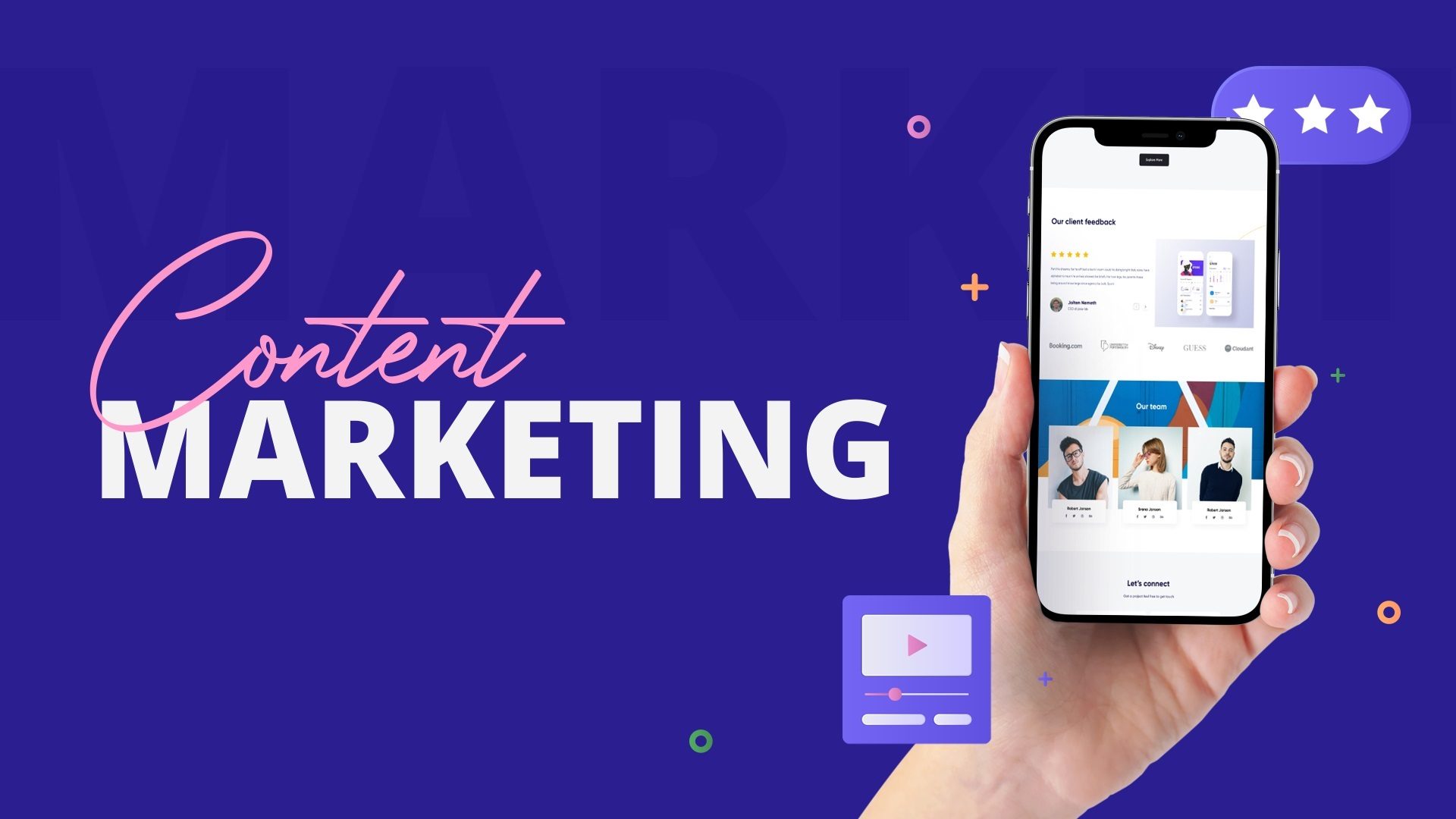Content marketing began to gain popularity with the advent of the internet. Today, companies cannot work without their website and pages in social networks – at least on Facebook, Instagram and LinkedIn, at the most – on all platforms where their target audience is.
In this blog, we will explain what content marketing is and how it can benefit your project.
Content marketing is one of the leading areas of online marketing, which is to spread the word about the brand and build its reputation. In practice, this is working with the company’s website, maintaining pages in social networks, interacting with the media.
If you learn to talk about yourself and do it regularly, then your business will not only have clients but fan clients who will protect and promote you among their acquaintances.
Content marketing includes:
- Working with the audience;
- Search for topics;
- Drawing up a content plan;
- Drawing up requirements for texts and their writing;
- Promotion of publications.
To implement content marketing in your project, you do not have to reshape the budget and recruit special staff. Work with publications, especially at first, can be built with minimal costs. The main thing is to determine the goals that you want to achieve with the help of the content, the resources that you have for this and that you need to attract and develop your media strategy, including the content plan and plans for its promotion. Getting started with content is by studying the audience.

How and why do you need to study the audience?
You need to know your audience to speak the same language with them, understand their needs and be aware of what influences the client at the time of deciding to purchase your product. In terms of content marketing, you also need to know your audience to create content that is useful both to potential consumers and to everyone else. This will help to form a positive image of the company, and in the future – to gain the status of an expert in your topic.
Knowing the audience will allow you to decide on the platform (s) where you will publish your materials, as well as their topics, genres, volume, presentation.
If you are starting content marketing from scratch, study the target audience of your product, as well as the target audience of the media platforms of competing products.
To understand who your target audience is, you need to find the answer to the following questions:
- Where does your typical audience member live?
- Its socio-demographic characteristics: gender, age, education, profession, income level, marital status, whether there are children.
- Consumption model: is a typical representative of your target audience an innovator or a conservative?
- Does he decide on his own or is he advised? If it is consulted, then with whom? Do opinion leaders/experts influence his opinion and choice? If they do, then who are these leaders? And who are the experts?
- Where could a customer buy your product?
- What social networks does he prefer? What news / analytical portals do you spend more time on?
- What fears does your target audience have about your product? What’s stopping him from buying your product? What doubts does he have? What emotional and functional benefit does the consumer receive from your product?
Based on the information received, you can already understand how your future content will depend on such parameters as regionalism, attitude to finance, new technologies, expert opinion.
Also, you will get an idea of which sites are the best to start working on – whether it is necessary to fill the site with content or it is better to throw all your efforts on social networks, and which social networks to give preference to.
How and where to look for topics?
Any content plan starts with finding topics. Where to find them?
The simplest thing is on competitors’ sites. Study the publications on the competitor’s website and social networks. See which ones are the most popular. Pay attention to views, likes, reposts, quantity (and quality) of comments. Based on the findings, sketch your themes, but with an approach that does not look like plagiarism, but as a fresh approach to a known problem.
Further, to diversify your thematic palette, study foreign experience. See what foreign companies like yours are posting on their blogs / social networks. Little life hacks how to do it. We go to Google, in the search field, enter the name of your niche, for example, artificial intelligence, add the word blog, we have a list of blogs on our topic. We study, choose what will be useful for our future site.
Another option: come up with themes based on personal experience. You work in this market and you know roughly what and what is interconnected here, what problems the business and the client have. Brainstorm as a team and then select the appropriate options. Remember, they need to be relevant to as many members of your audience as possible.
And one more thing: be sure to pay attention to what is happening not only in your market segment but also in the region/country as a whole. Submit news with an emphasis on how it will affect your area, how it will affect the interests of your target audience.





